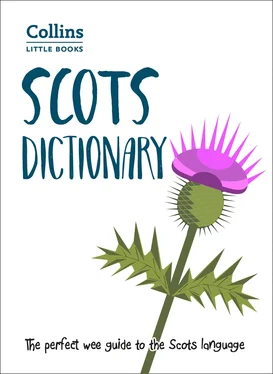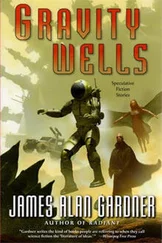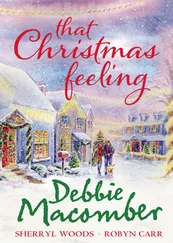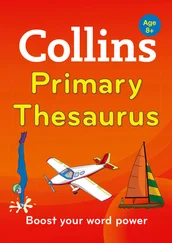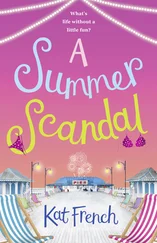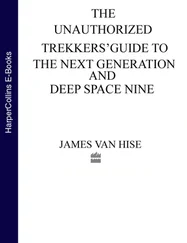Collins Dictionaries - Scots Dictionary - The perfect wee guide to the Scots language
Здесь есть возможность читать онлайн «Collins Dictionaries - Scots Dictionary - The perfect wee guide to the Scots language» — ознакомительный отрывок электронной книги совершенно бесплатно, а после прочтения отрывка купить полную версию. В некоторых случаях можно слушать аудио, скачать через торрент в формате fb2 и присутствует краткое содержание. Жанр: unrecognised, на английском языке. Описание произведения, (предисловие) а так же отзывы посетителей доступны на портале библиотеки ЛибКат.
- Название:Scots Dictionary: The perfect wee guide to the Scots language
- Автор:
- Жанр:
- Год:неизвестен
- ISBN:нет данных
- Рейтинг книги:3 / 5. Голосов: 1
-
Избранное:Добавить в избранное
- Отзывы:
-
Ваша оценка:
- 60
- 1
- 2
- 3
- 4
- 5
Scots Dictionary: The perfect wee guide to the Scots language: краткое содержание, описание и аннотация
Предлагаем к чтению аннотацию, описание, краткое содержание или предисловие (зависит от того, что написал сам автор книги «Scots Dictionary: The perfect wee guide to the Scots language»). Если вы не нашли необходимую информацию о книге — напишите в комментариях, мы постараемся отыскать её.
Scots Dictionary: The perfect wee guide to the Scots language — читать онлайн ознакомительный отрывок
Ниже представлен текст книги, разбитый по страницам. Система сохранения места последней прочитанной страницы, позволяет с удобством читать онлайн бесплатно книгу «Scots Dictionary: The perfect wee guide to the Scots language», без необходимости каждый раз заново искать на чём Вы остановились. Поставьте закладку, и сможете в любой момент перейти на страницу, на которой закончили чтение.
Интервал:
Закладка:
Copyright
HarperCollins Publishers
Westerhill Road
Bishopbriggs
Glasgow
G64 2QT
First edition 2018
First published in this format 2018
© HarperCollins Publishers 1995, 2014
Collins® and Collins Gem® are registered trademarks of HarperCollins Publishers Limited
www.collinsdictionary.com
www.collins.co.uk
A catalogue record for this book is available from the British Library
Editor Ian Brookes
Acknowledgements
We would like to thank those authors and publishers who kindly gave permission for copyright material to be used in the Collins Corpus. We would also like to thank Times Newspapers Ltd for providing valuable data.
All rights reserved under International and Pan-American Copyright Conventions. By payment of the required fees, you have been granted the non-exclusive, non-transferable right to access and read the text of this e-book on screen. No part of this text may be reproduced, transmitted, downloaded, decompiled, reverse engineered, or stored in or introduced into any information storage and retrieval system, in any form or by any means, whether electronic or mechanical, now known or hereafter invented, without the express written permission of HarperCollins.
Entered words that we have reason to believe constitute trademarks have been designated as such. However, neither the presence nor absence of such designation should be regarded as affecting the legal status of any trademark.
HarperCollins does not warrant that www.collinsdictionary.com, www.collins.co.ukor any other website mentioned in this title will be provided uninterrupted, that any website will be error free, that defects will be corrected, or that the website or the server that makes it available are free of viruses or bugs. For full terms and conditions please refer to the site terms provided on the website.
Source ISBN: 978-0-00-828552-4
Ebook Edition © July 2018 ISBN: 9780008285531
Version 2018-07-16
HarperCollinsPublishers has made every reasonable effort to ensure that any picture content and written content in this ebook has been included or removed in accordance with the contractual and technological constraints in operation at the time of publication.
Contents
Cover
Title Page
Copyright
Introduction
About this book
What is in this Dictionary?
The History of Scots
The Dialects of Scots
The Vocabulary of Scots
Using this book
Scots Dictionary
A
B
C
D
E
F
G
H
I
J
K
L
M
N
O
P
Q
R
S
T
U
V
W
Y
Z
About the Publisher
Introduction
This book was first published in 1995 as Collins Gem Scots Dictionary , with the aim of providing a handy and accurate guide to the words and phrases used in contemporary Scotland. Many things have changed in Scotland since the publication of the first edition: the political map of the country has been literally redrawn, with single-tier council areas replacing a two-tier system based on regions and districts; more dramatically, the Scotland Act of 1998 established a new devolved Scottish parliament in Edinburgh, with its own headquarters and distinctive ways of operating. These developments – as well as changes in other Scottish institutions – have introduced a number of new words into the everyday language of Scottish people, while rendering other terms redundant, and this edition of the dictionary has been revised to include important new words and phrases and remain a reliable guide to modern Scots.
About this Book
The Little Book of Scots is a dictionary of living Scots; but both “living” and “Scots” are terms which need some clarification. By “living” we mean that the words and terms defined are either in current everyday spoken or written use, or are readily familiar to Scottish people.
By “Scots” we mean the language of Germanic origin spoken by most Scots which is neither standard British English nor general slang.
Over the years, a great deal of excellent lexicographical work has been done on literary and historical Scots; and in recent years a number of smaller scale dictionaries dealing with the contemporary speech of various regions of Scotland have appeared. The aim of this book is to survey the modern colloquial language of Scotland as a whole, while not neglecting vital archaic or formal terms.
What is in this Dictionary?
This book covers three main types of vocabulary: everyday language, official and technical language, and literary language.
Everyday language.This consists of the words and phrases which people use in normal informal conversation. Some of these are used almost universally in Scotland, others only by people who speak broader forms of Scots rather than “Scottish English”, and others are restricted to one part of the country. It is highly unlikely that any one person would use all the words in this book as part of their natural language. Where we believe that a term is regional, we have indicated this in the entry.
Dialects have been covered according to the number of speakers they have: roughly a quarter of the population of Scotland lives within twenty miles of central Glasgow, and the language of urban West Central Scotland is therefore dealt with in more depth than the language of Caithness or the Borders. (West Central Scots is also the dialect most often heard on television, whether in comedies or in detective series.) This is not to say that one dialect is better Scots than another, simply that some are more widely spoken than others.
Official and technical terms.Scotland has its own distinctive systems of law, religion, education, and government, and each of these systems has its own terminology. Many of these terms are included. Also included are words to do with specific Scottish activities such as whisky-making, shinty, and piping.
Literary Scots.Different writers have used Scots in different ways. Some have written in what is more or less standard literary English, with a sprinkling of Scots words and idioms. Others have chosen to write using a language based on the speech of one particular area, be it Glasgow, Edinburgh, or the rural Northeast. Yet others have attempted to create a modern literary Scots by using words from all parts of the country and, where necessary, going back to the language of Scots writers of the past for vocabulary. The objection often raised to this approach is that the result is far removed from the natural speech of any person from any part of the country. This split between literary and colloquial language is not unique to Scots – as the Scots language poet Sydney Goodsir Smith pointed out, “wha the deil spoke like King Lear?” – but because the standard written language of Scotland for the past three centuries has been English, the difference is particularly noticeable in Scots. For reasons of space only the most basic literary Scots has been included.
The History of Scots
When the Angles, Jutes, and Saxons began to settle in Britain from the fourth century on, they brought with them their own Germanic dialects, and these became Old English, the language of the parts of England and Southern Scotland under Anglo-Saxon rule. This eventually developed into what is known as Middle English. Over the centuries, as the Scottish and English states emerged as unitary wholes, and followed their own historical paths, a language based on the Northumbrian dialect of Middle English (that spoken North of the Humber) emerged as one of the standard languages of Scotland. It is ultimately from this that modern Scots is descended. Scots has always tended to define itself in terms of what it isn’t: this early Anglo-Saxon derived tongue, initially only spoken in Southeast Scotland, was known as Inglis , to distinguish it from the Gaelic spoken in the Highlands and parts of Southwest Scotland, the Welsh-related language of much of West Central Scotland, the Pictish of the Northeast, and the Norse of the Islands and the Far North. Only later, when it had emerged as the chief administrative and spoken language of Scotland (although Gaelic remained in widespread use), did it became known as Scots to distinguish it from the separate but closely related tongue of England.
Читать дальшеИнтервал:
Закладка:
Похожие книги на «Scots Dictionary: The perfect wee guide to the Scots language»
Представляем Вашему вниманию похожие книги на «Scots Dictionary: The perfect wee guide to the Scots language» списком для выбора. Мы отобрали схожую по названию и смыслу литературу в надежде предоставить читателям больше вариантов отыскать новые, интересные, ещё непрочитанные произведения.
Обсуждение, отзывы о книге «Scots Dictionary: The perfect wee guide to the Scots language» и просто собственные мнения читателей. Оставьте ваши комментарии, напишите, что Вы думаете о произведении, его смысле или главных героях. Укажите что конкретно понравилось, а что нет, и почему Вы так считаете.
